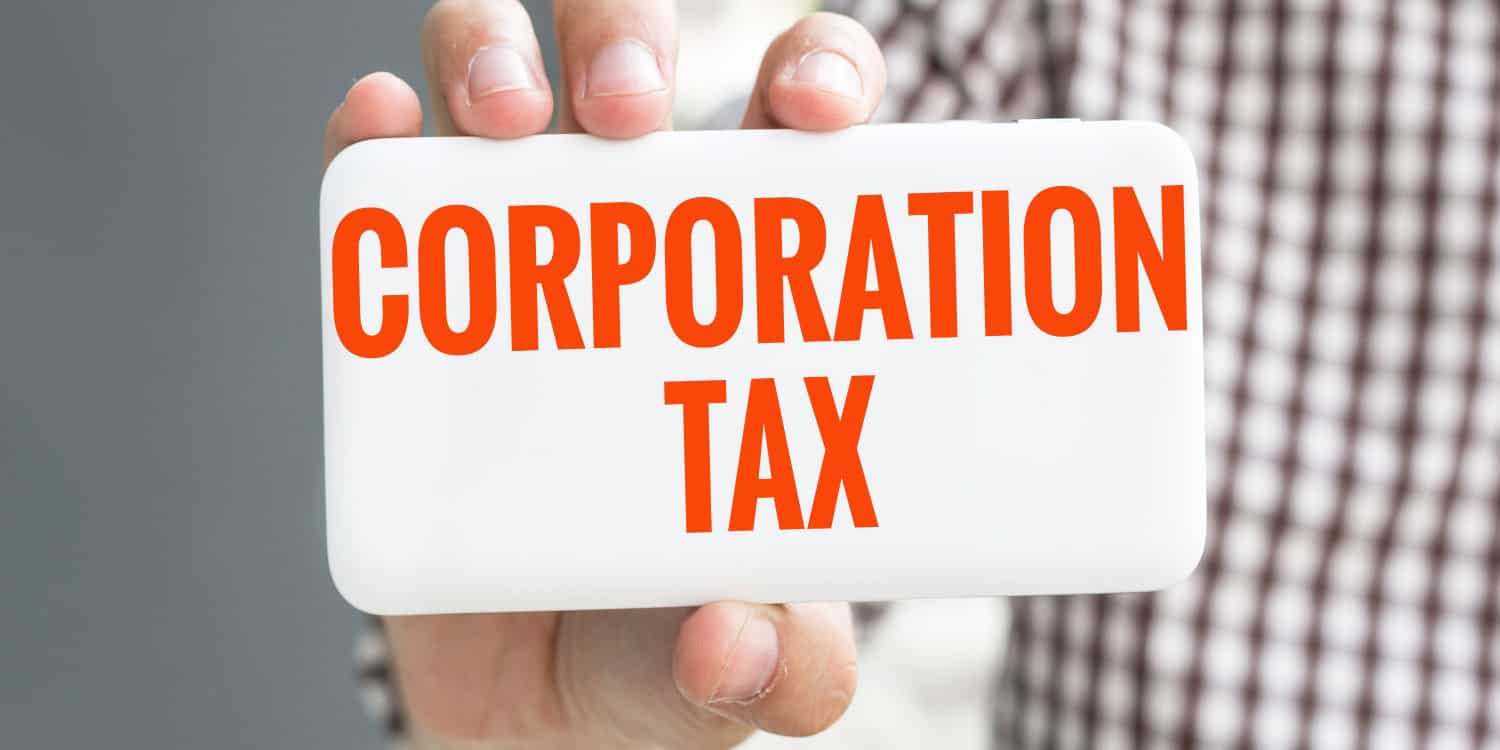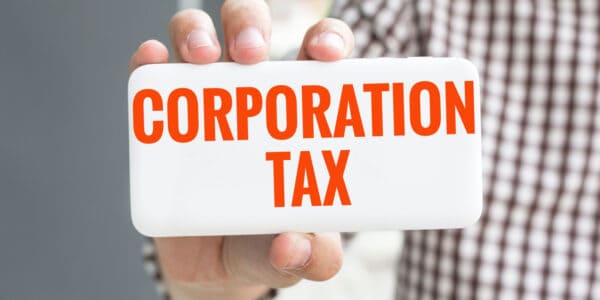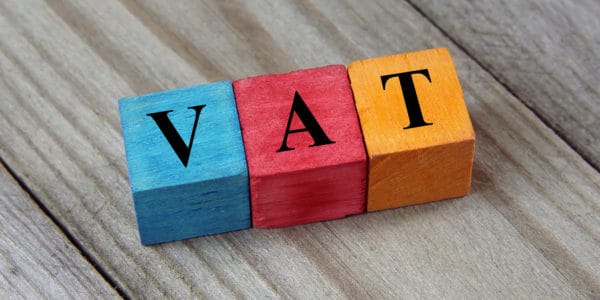Corporation Tax is a type of business tax that companies pay on their taxable trading profits. In the UK, the rate of Corporation Tax that a company pays depends on its level of profits in a year. When you register a company, you are legally obligated to register for Corporation Tax with HMRC online within three months of starting to trade.
Key takeaways
- Register for Corporation Tax within three months of trading to avoid penalties from HMRC.
- Deduct allowable business expenses to lower your taxable profits for Corporation Tax.
- File your Company Tax Return annually, even if no tax is due, to comply with HMRC regulations.
In this blog, we explain how Corporation Tax works. We also cover how and when to register for it, what counts as taxable profits, how to file Company Tax Returns, and when to pay the tax you owe to HMRC.
Current UK Corporation Tax rates
Companies in the UK pay different rates of tax depending on their level of profits. At present, the rates of Corporation Tax in the UK are:
- 19% (small profits rate) for companies with profits under £50,000
- 25% (main rate) for companies with profits over £250,000
Companies with profits between the small profits rate and the main rate can claim Marginal Relief, which provides a gradual increase in the effective Corporation Tax rate between the two rates.
However, Marginal Relief is not available to non-UK resident companies or close investment holding companies.
Furthermore, companies whose profits exceed £250,000 cannot claim Marginal Relief on the portion of profit between the small profits rate and the main rate. In this situation, all company profits are liable to 25% Corporation Tax.
Do all companies need to register for Corporation Tax?
All ‘active’ companies are required to register for this tax. HMRC considers a company to be active for Corporation Tax purposes when it is:
- carrying on a business activity, such as a trade or professional activity
- buying and selling goods with a view to making a profit or surplus
- providing services
- earning interest
- managing investments
- employing people (including directors)
- advertising the business
- renting property for commercial purposes
- receiving any other form of income
If none of these activities apply to your company, it will be classed as dormant for Corporation Tax purposes. In such instances, you must tell HMRC as soon as possible that your company is not currently trading and is dormant for Corporation Tax purposes.
There is no requirement to register for Corporation Tax or file Company Tax Returns and annual accounts with HMRC if your company is dormant. However, you will need to prepare dormant company accounts and confirmation statements for Companies House.
Be aware that ‘pre-trading activities’ and ‘pre-trading expenditure’ are classed as trading and will make your company active for Corporation Tax. The only exceptions are preliminary activities and expenditures, like writing a business plan, negotiating contracts, and costs incurred whilst deciding whether or not to start the business.
What are taxable profits for Corporation Tax?
Your company will pay Corporation Tax on all taxable profits generated in the course of doing business, which includes:
- trading profits – income earned from selling goods or services
- profits from investments
- chargeable gains – profits made from selling assets (e.g. property, equipment, machinery, company shares) for more than you paid for them
Most costs related to running the company can be deducted from your turnover before tax – you will do this when preparing your annual accounts. This means that you won’t pay Corporation Tax on things like:
- wages and other staff-related costs, including your director’s salary
- business rent and utilities
- equipment, machinery, stock, raw materials
- office supplies
- Internet and telephone costs
- business insurance
- advertising, marketing, and PR expenses
- costs incurred when using your home as an office
These types of business costs are classed as allowable expenses for Corporation Tax.
How and when to register for Corporation Tax
By law, companies are required to register for Corporation Tax no later than three months after starting to trade, carrying on a business activity, or receiving income.
To register for Corporation Tax, you will need to sign in to (or create) your HMRC business tax account. This is the same account that you’ll use if you also need to register your company for VAT or Pay As You Earn (PAYE).
During the process, you will need to provide:
- your company’s 10-digit Unique Taxpayer Reference (UTR) – HMRC will post this to your registered office address within 14 days of company formation
- your company registration number – you will find this on your certificate of incorporation
- main business activities
- address where principal business activities take place
- the date on which your company became active for Corporation Tax
- the date that your annual accounts are ‘made up to’ – this is known as the accounting reference date (ARD) and it usually falls on the anniversary of company formation
HMRC will use all of this information to determine your company’s 12-month accounting period for Corporation Tax and the deadlines for filing Company Tax Returns and paying Corporation Tax.
Filing your Company Tax Return with HMRC
If your company is active and registered for Corporation Tax, you are required to file a Company Tax Return with HMRC every year – even if your business makes a loss or does not have any tax to pay. You must also prepare and include full (statutory) annual accounts with your tax return.
The tax return and accounts will show HMRC what your company spent and received during its most recent financial year, its profit/loss and allowances for that period, and how much Corporation Tax (if any) it owes.
- Preparing annual accounts for your limited company
- Do I pay tax on my business expenses?
- 7 types of business taxes you need to know about
All companies are required to complete and file their Company Tax Returns online. You are only permitted to file a paper tax return if you want to file in Welsh (for a company registered in Wales) or if you have a reasonable excuse for being unable to file online.
The filing deadline is 12 months after the end of your accounting period for Corporation Tax. This normally aligns with the financial year covered by your annual accounts, but HMRC will provide confirmation of your accounting period and filing deadline in advance.
How and when to pay your Corporation Tax bill
Corporation Tax must be paid to HMRC no later than 9 months and 1 day after the end of the company’s most recent accounting period. Notice that the payment deadline is 3 months before your tax return is due – don’t get caught out by confusing these two dates!
You can pay your Corporation Tax bill in a number of different ways, including:
- online or telephone banking
- by CHAPS or Bacs
- through your online bank account
- by Direct Debit
- online using a debit or credit card
- in person at your bank or building society
Depending on which payment method you use, you may have to provide your Corporation Tax payslip reference for the accounting period you are paying.
If you pay your tax bill late, HMRC may charge you interest. However, if you pay your bill early, HMRC will pay you interest instead.
If no Corporation Tax payment is due
If you don’t have any tax to pay, you must tell HMRC by the payment deadline. You can do this in one of two ways:
- complete the ‘nil to pay’ form
- return the payslip included in the reminder from HMRC, marking it with ‘NIL due’
But remember, you will still need to file a Company Tax Return by your filing deadline even if you have nothing to pay.
In summary
We’ve covered the basics of Corporation Tax here, explaining what it is, how and when to register, what counts as taxable profits, and how to file a Company Tax Return and pay your tax bill.
Hopefully, this post has given you a better understanding of the topic and your company’s obligations. However, if you need further help or have any questions, please contact us or leave a comment below.












Join The Discussion
Comments (4)
Hello,
I am a Bangladeshi citizen, currently living and working in Malta for more than 2 years. I am a tax resident in Malta and I pay tax on my personal income here regularly.
Now, I am planning to open a UK Limited (LTD) company for an e-commerce business. I will use my Malta ID and residential address during the UK company formation process.
A few important clarifications:
I do not plan to take any salary from the UK company.
I do not plan to remit any money to Malta from the UK company.
The UK company will pay UK corporation tax.
Any profits will remain in the company or may be remitted to Bangladesh in the future.
I might take dividends from the UK company later, but only after paying UK corporation tax.
❓My Question:
Based on the above situation, am I liable to pay any personal income tax in Malta on:
The profits of the UK company?
The dividends I receive in the future, if I do not remit them to Malta?
If I remit the dividends to Bangladesh, not Malta — will Malta still tax me?
Thank you in advance for your guidance.
Thank you for your kind comment.
Unfortunately as we are not regulated to provide accountancy advice, we are unable to provide advice on specific scenarios. We would recommend contacting an accountant for further assistance.
Please accept our apologies for any inconvenience caused.
Kind regards,
The QCF Team
This blog post is a lifesaver! I’ve been grappling with the intricacies of Corporation Tax for my business, and your detailed breakdown has made the process much more manageable. The clarity on the recent changes in the UK Corporation Tax rates for the 2023/24 tax year is immensely helpful, especially the part about Marginal Relief.
The distinction between ‘active’ and ‘dormant’ companies is a point that often gets overlooked, and your emphasis on notifying HMRC when a company becomes dormant is a crucial reminder for business owners like me.
I also appreciate the practical insights into taxable profits and allowable expenses. It’s like a roadmap to navigate the complex terrain of Corporation Tax. The step-by-step guide on registration, filing returns, and paying the tax bill is invaluable for someone like me who’s not a tax expert.
Thank you for simplifying a potentially daunting topic. If I have any further questions or need clarification, I’ll definitely reach out. Keep up the fantastic work!
Thank you for your kind words, Steve.
Kind regards,
The QCF Team